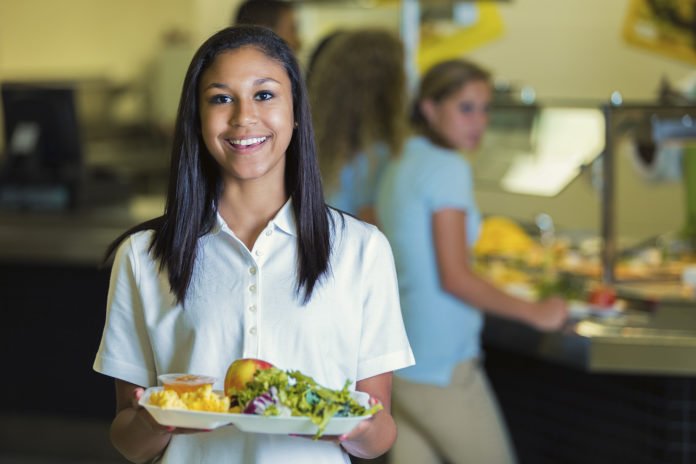Eating healthy is an important part of a healthy lifestyle and is something that should be taught at a young age. A new study by the Stanford scientists, adolescents who have health-oriented food rules at home is more likely to make healthy eating decisions on their own.
The finding is uplifting news for guardians who need their children to eat their vegetables.
Scientists found that rules centered around health – for example, only allowing junk food for special occasions; or that a vegetable must be eaten at dinner – may be effective because they emphasize the importance of considering healthiness when making food choices.
Stanford doctoral candidates Jennifer Wang and Priya Fielding-Singh said, “It is important for parents to understand whether having food rules – and more specifically, what kinds of food rules – may help encourage healthy eating. Rules unrelated to health, such as no cell phones at the dinner table, had no effect on guiding teens to make healthy food decisions.”
Scientists surveyed 1,246 adolescents in order to understand adolescents’ independent food choices. During the study, they were asked about their dietary convictions and practices, and furthermore about their impression of parental states of mind and practices identified with sustenance.
Fielding-Singh, a sociology doctoral candidate in the Stanford School of Humanities and Sciences who co-authored the study with Wang said, “The students that participated in our study understood what foods were healthy and unhealthy. We, adults, tend to underestimate how cognizant teenagers are of the healthiness of what they are consuming.”
Scientists wanted to know more than just what teenagers thought about food. They were curious to know how teens actually behaved when they didn’t think their parents were watching them. So they installed a controlled analysis inside their examination.
At the start of the study, the high schoolers were informed that their investment naturally entered them into a wager where they could win two snacks of their decision to get from the school office the next week. Neither understudies nor educators knew that the tidbit pool was a piece of the specialists’ trial.
From that point, the researchers ran several conditions to manipulate whether teenagers thought their parents would have to approve their snack choices. In one condition, understudies were informed that they would require parental endorsement before they could get their tidbits. In another condition, understudies were informed that they would not require their folks’ endorsement to get their tidbits.
Understudies have then demonstrated 10 snacks, five of which were more beneficial and five of which were less sound. These snacks included yogurt, hummus with pretzels, and apple slices, as well as gummy worms, Oreo cookies, and Cheetos. Students were then asked to choose two snacks.
Adolescents who reported having at least one health-oriented food rule at home had significantly higher odds of choosing a healthier snack – regardless of how much parental oversight they perceived.
In addition understudies with a wellbeing focused nourishment decide revealed that they will probably feel great when they settled on sound decisions and feel terrible when they made unfortunate ones.
This study builds on Fielding-Singh and Wang’s earlier research that found socioeconomic differences in how mothers and adolescents talk about food.
